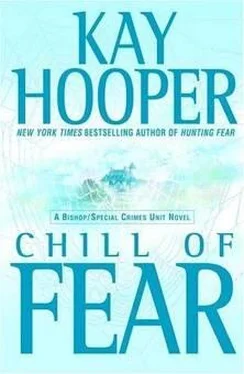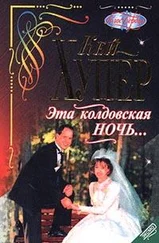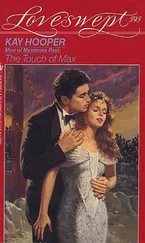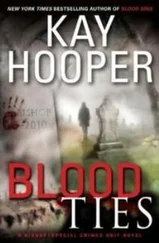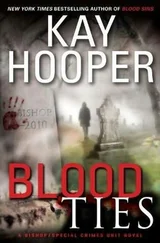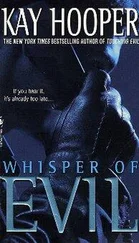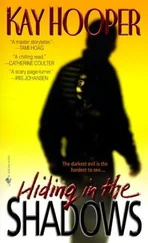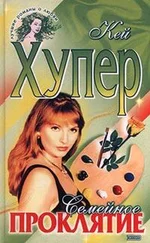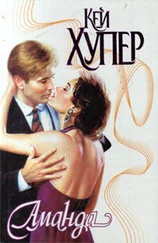Quentin paused, then added, "And don't discount the fact that the FBI, not the most frivolous organization in existence, was accepting enough of the idea to allow our unit to be created in the first place some years ago."
Diana took another sip of her tea, more to be doing something than because she wanted it.
Quentin went on, "Diana, I know this is a possibility you've never considered. But what will it hurt to consider it now?"
"I'd be lying to myself. I'd be looking for an easy answer." Her reply was automatic after so many years of being warned by doctors not to justify, not to attempt to "explain away" her symptoms.
"Who says the answer has to be complicated?"
"People are complicated. The human mind and human emotions are complicated."
"Agreed. But sometimes the answers aren't complicated at all." He smiled again, ruefully this time. "Although, as a matter of fact, you'll find that having psychic abilities complicates the hell out of your life."
"Gee, that's all I need."
"I'm not handing you a magic pill. And I'm sure as hell not telling you that your life will suddenly be perfect, all your problems in the past, just because there's a very simple answer to the question of what's wrong with you. Nothing is wrong. Your mind just works a bit differently from what is traditionally considered the norm."
Listen to him.
Diana caught her breath, staring at the cup in her hand. It had always sounded alien, that particular whisper in her head, somehow not a part of her. It was one reason she had never been able to completely buy the doctors' various explanations — because all of them had more or less stated that what she "heard" in her mind were only aspects of her own personality.
So why did this whisper feel like someone else?
"Diana?"
She set her cup down and looked at Quentin, listening to the rumblings of the storm as it rolled around the mountains and seemed to circle the valley. Round and round and back again. She tried to listen to that and not to the whisper in her mind.
He can help you. He can help us.
To Quentin, a bit unsteadily, she said, "I've sat across from enough doctors to have heard, over the years, most of the jargon. It varied a little from one to the next, but one thing they all had in common was the absolute conviction that hearing voices made you delusional."
"If you're insane. Not if you're psychic."
A little laugh escaped her, hardly a breath of sound. "They were all very careful not to use that word. Insane. Very careful to find nice, socially correct words and phrases to use instead. Disturbed. Ill. Confused. In need of more... advanced... therapy. I think my favorite phrase was 'in transition.' I asked that particular doctor what I was in transition from. Or to. He said with a perfectly straight face that I was in transition from a state of confusion to a state of certainty."
"Christ," Quentin muttered.
"Yeah, he wasn't the best at it. He didn't last long. Or — I didn't last long with him."
Diana...
"Diana, I know I'm asking a lot in asking you to believe that you're psychic—"
"What makes you think I am, by the way? I could have been making up everything I've told you." She was trying very hard to ignore that other voice.
"You didn't make up that sketch — so to speak. Besides, we tend to recognize each other."
"At first sight?"
"Pretty much."
"I see. So now I'm a member of a secret club?"
Quentin grinned suddenly, recalling that initial conversation with Bishop years before. "Something like that. As for recognizing others like you, you'll find it comes in handy."
"You claim to be psychic, and yet I didn't... sense... anything different about you," she said, realizing as the words emerged that she was lying. She had sensed something, had known in an instant that her life was about to change forever because of him, even if she hadn't been able to admit it to herself then.
"I'm willing to bet you did," he said, still smiling. "But you haven't been taught how to sort through the impressions of all your senses. I can help you with that."
"Sure. And then I get to recognize people as nuts as I am."
"You aren't nuts."
"No, just seriously disturbed."
"That either. Look, even if I was wrong about you being psychic and you did accept the possibility, would you be worse off than you are now?"
"I don't know."
... listen to him.
"Could you be? You've been medicated, and you've tried every form of therapy available without success. Why not take a chance and find out if I can help you? What have you got to lose?"
Instead of answering that, Diana said, "You believe I can help you solve Missy's murder, don't you?"
Quentin hesitated, then said, "There has to be a connection. You drew her picture."
"Even if I did, that doesn't mean I can help you. If I'm psychic, as you claim, then maybe I just... picked up her image somehow. From here, this place where she died. That would make sense — at least in your world."
He ignored that little dig. "Maybe you did. But if you did, it's very likely you could pick up other information as well."
"Information about Missy and her murder."
"Yeah, maybe."
"So who's helping who?"
This time, Quentin didn't hesitate. "We're helping each other, or we will be."
Listen to him. Let him help us.
Diana forced herself to stand up. "I have to think about this," she told him. "I — the storm seems to be easing up. I think I'll go to my cottage for a while." She took a step away.
On his feet as well, Quentin said, "Diana? Better stop by the front desk and have your keycard redone. We both know it won't work."
"How did you—"
"We usually have a higher than normal level of electromagnetic energy in our bodies. Tends to interfere with some electrical or magnetic things, especially those we have to carry around with us. Like watches. And keycards."
He wasn't wearing a watch.
Diana glanced down at her left arm, bare of a watch because she'd never been able to wear one. Then she stared at Quentin for a moment before turning and walking away.
Toward the front desk.
It was late afternoon, the storm long gone, when Quentin found Beau in the conservatory, alone, painting at an easel.
"Making progress?" the artist asked. Quentin couldn't see what was on the canvas, and wasn't interested enough to look; he appreciated both fine art and the people who created it, but right now his mind was on something else. "I have no idea," he replied frankly. "She hasn't called the cops or the guys with the butterfly nets — yet. But she also hasn't admitted to even the possibility that she's psychic."
"Not surprising, really. So many people have spent so many years convincing her she's sick."
"Yeah, and I hate that." Quentin scowled and began prowling among the other easels set up for Beau's students. "They've done a real number on her."
"Conventional medicine. They only know what they think they know."
"They know shit, at least when it comes to us."
"True." Beau watched the other man for a moment, then smiled slightly and returned his attention to his canvas.
"Not that you don't definitely have some sick puppies in your workshop, judging by some of these."
"Troubled people. Not sick puppies."
"No, Beau, these are some sick puppies." Quentin was staring at one canvas that bore a somewhat abstract image of a prone figure seemingly in a pool of blood. The figure was contorted in an agonized pose, and sticking out of its chest was what appeared to be a huge knife.
Unperturbed, Beau said, "Less sick when you know the background. His brother was killed in a violent mugging. Protecting him. He's still trying to come to terms with it. With the exception of Diana, all the students in this workshop are trying to come to terms with a specific traumatic event. So they aren't emotionally disturbed in the clinical sense. Ordinary people, for the most part."
Читать дальше
